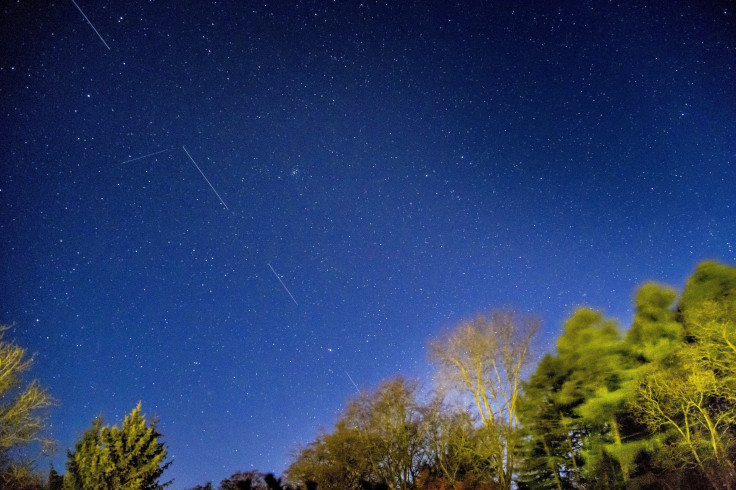UK-Japan Joint Space Mission to Trace the Universe Back to Its Origin
The UK Space Agency and the Japan Aerospace Exploration Agency are collaborating on the LiteBIRD mission to trace the Universe back to its origin using one-of-kind telescope lenses developed by Cardiff University.

The space sector of Britain is buzzing with space explorations and research ideas. The latest addition to it is the UK joining the Japanese space mission to trace the Universe to its origin.
The UK Space Agency announced last week that Britain will play a crucial role in the landmark space mission that aims to trace the origins of the Universe. Space scientists will be looking at different patterns in the light from space which goes back to the Big Bang for this purpose.
This mission hopes to understand the nature of our Universe better including the knowledge of how it all started.
As part of this space mission to trace the Universe back to its origin, a Japanese-led light satellite powered with cosmic background radiation detection will check the variations in the leftover light from the Big Bang.
Known as the LiteBIRD mission it seeks to analyse the current Universe expansion theory or the cosmological inflation theory which says that the Universe expanded instantly after it formed.
The UK Space Agency revealed that it has allocated £2.7 million to fund this "trace the Universe back to its origin" mission. The funds will be utilised in two ways – part of it will help UK scientists design highly specialised instruments needed for the LiteBIRD project and the rest will be invested in developing telescopes' lenses and filters by Cardiff University.
Cardiff is the only institution in the world who have the experience and expertise to make such telescope lenses. LiteBIRD is one of the many space projects where the UK and Japan are partnering.
The mission is scheduled to launch before 2030 and the UK Space Agency will be investing £17 million throughout the project.
Dr Kuninaka Hitoshi from the Japan Aerospace Exploration Agency (JAXA) hailed Britain's contributions to the LiteBIRD mission as the Cardiff team led by Professors Peter Hargrave and Erminia Calabrese develops the metal mesh filters for the telescopes needed in this mission.
The UK Space Agency has also provided funding for experts at the University of Aberdeen to work on the initial design for an instrument for a future JAXA Mars rover, said Dr Hitoshi.
Earlier in the week, Britain announced £1.7 million funding to support Viasat's in-orbit telemetry relay service "In-Range" which would be used by Mitsubishi Heavy Industry's H3 to launch a rocket into space in 2025. The funding came from the UK's £20 million International Bilateral Fund.
This rocket design has been deemed a cost-effective and easy-to-use solution for commercial launches.
This allocation to unravel the mysteries of the origin of the Universe comes at a time when the UK Space Agency got £65 million in space innovation funding to develop future space missions and £15 million for advanced Earth Observation Technology.
'Trace the Universe to its Origin' mission to be a game changer in space science
Speaking about the matter, the UK Minister for Space, George Freeman said: that the initial £2.7 million allocated through the UK Space Agency will help the Japanese-led LiteBIRD mission to explore the origins of the Universe.
The Space Minister termed this "trace the Universe back to its origin" mission "a great moment for UK space science and technology" as it deepens Britain's "science, technology and innovation collaboration with Japan".
Freeman further elaborated how this mission along with the new Viasat and Mitsubishi project showcased the UK's rapid progress in space collaboration since the Minister signed the partnership deals last December and in May.
The specialised telescope developed by Cardiff University and other UK universities speaks of world-class deep space science and cutting-edge technology development, said the Space Minister.
The Chief Executive of the UK Space Agency Dr Paul Bate termed the LiteBIRD mission "a gamechanger for our understanding of cosmology" as it tests the theories of the origins of the Universe
Dr Bate expressed his excitement in seeing the UK at the forefront of the mission, partnering with other global players and pushing the boundaries of space science.
Dr Bate explained what the LiteBIRD mission sought to do as it observed the leftover light from the Big Bang.
According to the cosmological inflation theory, there are primordial gravitational waves at light from the beginning of the Universe which is known as the 'cosmic microwave background' (CMB). LiteBIRD will observe the polarisation pattern in the CMB to test the origins of the Universe, said Dr. Bate.
The mission will use different frequencies of telescopes to detect the B-mode signals in the CMB, Dr. Bate added.
The high and mid-frequency telescopes needed for this project will be developed by the European consortium led by the French space agency CNES. Britain is a part of this consortium.
The optical components needed for this mission will be developed by Cardiff University in association with other UK universities including University College of London, Mullard Space Science Laboratory, Sussex, Manchester, Oxford and Cambridge University.
© Copyright IBTimes 2025. All rights reserved.






















